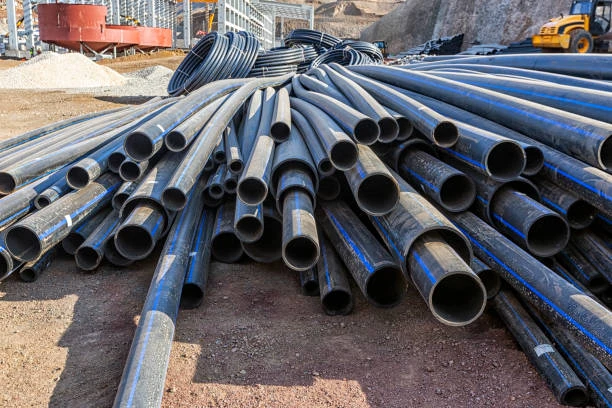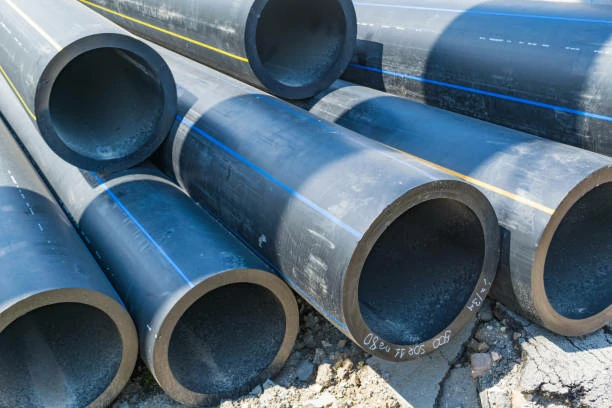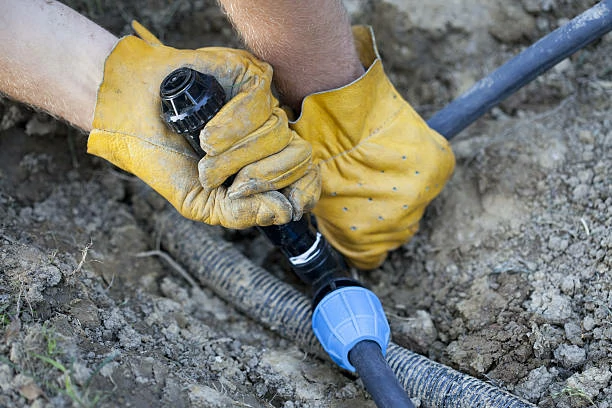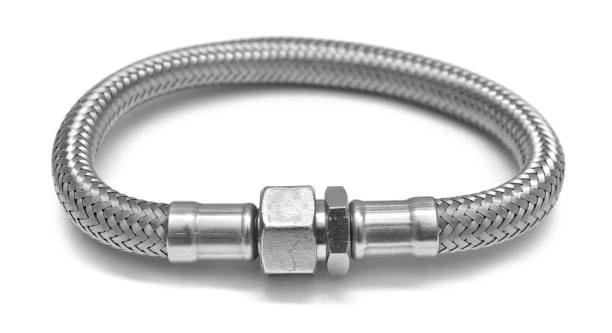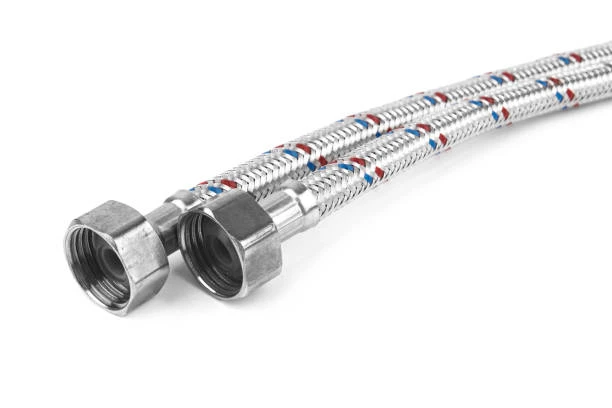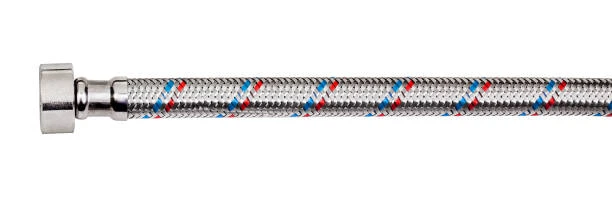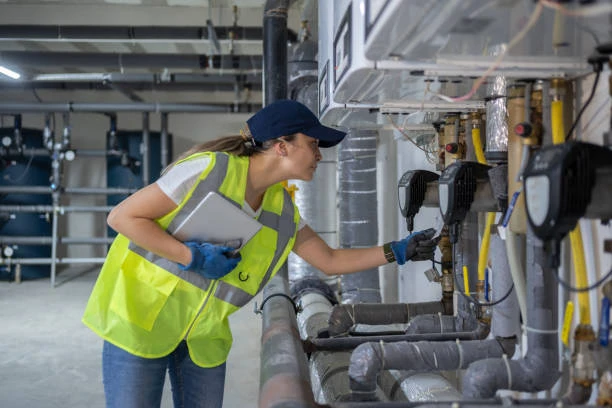
Introduction: Unlocking Efficiency with PEX Water Pipe in Solar Heating Systems
As energy efficiency becomes a global priority, solar water heating systems are gaining popularity across both residential and commercial projects. However, the efficiency of such systems heavily relies on the quality and durability of their plumbing infrastructure. Among the available materials, PEX water pipe has emerged as an ideal solution for solar heating systems, thanks to its flexibility, temperature resistance, and long-lasting performance.
Designed to handle fluctuating temperatures and high pressures, PEX water pipe integrates seamlessly into solar heating circuits, making it a reliable option for both collectors and storage systems. From rooftop installations to mechanical rooms, its resilience against corrosion and scaling, combined with ease of installation, makes it the smart choice for sustainable energy solutions. This article provides an in-depth overview of how PEX can be integrated into solar water heating systems, offering insights into its applications, benefits, and practical comparisons.
Frequently Asked Questions About PEX Water Pipe in Solar Heating
Is PEX water pipe suitable for solar hot water systems?
Yes. PEX—especially PEX-A or oxygen-barrier types—is suitable for solar heating, as it tolerates high temperatures and fluctuating pressures effectively.
Can PEX pipe handle high-temperature water from solar collectors?
Standard PEX is rated up to 95°C, while some high-performance variants can manage even higher peaks, particularly in closed-loop systems using glycol.
Does PEX resist corrosion from solar heating fluids?
Absolutely. PEX is chemically stable and resists corrosion from glycol-based fluids used in closed-loop solar circuits.
Is it better than copper in solar heating applications?
In many cases, yes. PEX is easier to install, more resistant to freeze-thaw cycles, and requires fewer joints—making it less prone to leaks.
How long does PEX last in solar heating systems?
With proper installation and temperature control, PEX can perform effectively for over 40 years in a solar heating system.
What Is PEX Water Pipe and Why Is It Ideal for Solar Systems?
PEX stands for cross-linked polyethylene, a form of plastic pipe that has undergone a cross-linking process to improve its resistance to temperature, pressure, and chemical degradation. Among the various types, PEX-A (created via the peroxide method) is most suitable for solar heating because of its exceptional flexibility and thermal memory.
Key characteristics of PEX water pipe:
Thermal tolerance: Maintains structural integrity at temperatures up to 95°C
Chemical resistance: Withstands antifreeze and additives used in solar systems
Oxygen barrier options: Prevents corrosion in metal components when used in closed-loop systems
Flexibility: Can be bent around obstacles, reducing the need for fittings and lowering leak risk
Smooth internal surface: Minimises scale and deposit buildup over time
Cost-efficiency: Lower material and labour costs than traditional copper or stainless steel alternatives
These features combine to make PEX an ideal match for modern solar heating technologies, offering both performance and affordability.
Typical Applications and Industries Using PEX for Solar Heating
PEX water pipes are used across multiple sectors that have adopted solar energy to reduce operating costs and environmental impact.
Common applications include:
Residential solar water heating systems
Commercial buildings with solar-assisted hot water
Hotels and resorts using solar preheating loops
Hospitals and care homes aiming for sustainability targets
Educational facilities integrating renewable heating systems
Greenhouses using solar-heated water for internal climate regulation
Its adaptability and chemical resistance make PEX an asset in both retrofit and new-build projects looking to implement eco-conscious solutions.
Buying Guide: Selecting the Right PEX Water Pipe for Solar Use
When planning a solar heating system, choosing the correct PEX pipe ensures system longevity and optimal thermal performance.
Important factors to consider:
Pipe type: PEX-A offers the best thermal and mechanical resilience.
Temperature rating: Choose pipes certified to withstand continuous use at 95°C or more.
Oxygen barrier: Required in closed-loop systems to prevent oxygen ingress and protect metal components.
Certification: Ensure compliance with ISO 15875, ASTM F876/877, and NSF for potable water if necessary.
Diameter and wall thickness: Match pipe sizing to system flow rates and heat load.
Colour coding: Red for hot lines, blue for cold, and white or grey for universal use.
Coil length: Longer coils minimise joints, reducing potential leak points and installation time.
Also, ensure that the pipe is compatible with the antifreeze solution used (typically propylene glycol in solar heating systems).
Installation Notes: Best Practices for Solar Heating with PEX
Installing PEX water pipe in solar systems involves unique considerations due to the involvement of high temperatures, pressurised fluids, and outdoor exposure.
Installation tips include:
Use high-temperature rated fittings compatible with the solar system’s fluid medium
Protect from UV exposure by running pipes inside insulated conduit or using UV-resistant jackets
Support horizontal runs every 50 cm and vertical every 100 cm to prevent sagging
Avoid direct contact with hot collector plates; use metal stubs for exposed areas if needed
Allow for thermal expansion by incorporating flexible loop designs or expansion joints
Pressure test and flush system before commissioning to remove air and debris
In closed-loop systems, ensure glycol concentrations and pH levels are regularly checked to maintain fluid and pipe integrity.
PEX Water Pipe vs Other Solar Piping Materials
| Feature | PEX Water Pipe | Copper Pipe | Stainless Steel Pipe | CPVC Pipe |
|---|---|---|---|---|
| Flexibility | Excellent | Low | Moderate | Moderate |
| Installation Ease | Very easy | Complex | Moderate | Easy |
| Thermal Tolerance | Up to 95°C+ | Over 100°C | Over 100°C | Up to 90°C |
| Corrosion Resistance | Excellent | Moderate (depends on water) | Excellent | Good |
| UV Resistance | Needs protection | Good | Excellent | Poor |
| Cost | Low to moderate | High | High | Low |
| Freeze Resistance | Excellent (expands when frozen) | Poor | Poor | Moderate |
| Service Life | 40–50 years | 50+ years | 50+ years | 30–40 years |
In terms of performance and cost, PEX water pipe provides the most balanced solution for solar heating, particularly in domestic and small commercial applications.
Conclusion: Why PEX Is the Smart Choice for Solar Water Heating Systems
Incorporating PEX water pipe into solar water heating systems provides long-term value, improved performance, and simplified installation. Its resistance to temperature fluctuations, corrosive fluids, and internal scaling ensures minimal maintenance over time. Moreover, it helps reduce installation complexity—saving both time and labour costs on site.
As global energy systems shift toward renewables, the demand for durable and compatible plumbing solutions continues to grow. PEX, with its chemical stability, thermal efficiency, and structural resilience, meets this need. Whether used in rooftop collectors, mechanical plant rooms, or hybrid systems, it offers a reliable foundation for any solar water heating setup.
Contact Us
IFNS is a Chinese manufacturer of plastic pipes, fittings and valves with 30 years of experience.
If you are interested in our copper fittings, copper valves, or plastic pipes and fittings, please feel free to contact us.
IFNS offers a wide range of standard pipes to meet your specific needs.
We will reply to your email or fax within 24 hours.
If you have any questions about our products, please feel free to contact us by phone.
For more information,pls visit our webside https://ifns.su/
Whatsapp: +86 15088288323


